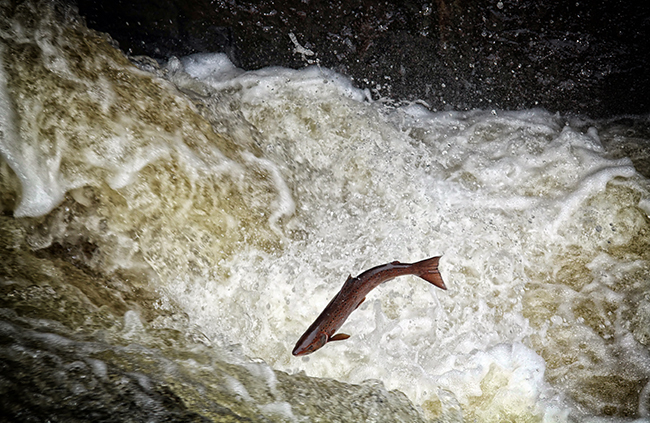
10 ridiculous Scottish laws you won’t believe
Who knew Scotland was harbouring such a history of strange and archaic laws?
We’ve all heard rumours about it being illegal to parade cows down certain high streets on particular days of the year, but here we round up 10 you’ll find it hard to believe are real.
Guilty, until proven innocent!
Scotland is unique in that under Scots law you are effectively guilty until proven innocent. This is because of the presence of a third verdict at the end of a criminal trial – as well as ‘guilty’ and ‘not guilty’, there is also ‘not proven’. If found ‘not proven’ the jury believe you to be guilty, but didn’t have enough evidence to convict. So you managed to get away with it. A bid to abolish the ‘not proven’ verdict was rejected by MSPs in 2016.
Cattle call
Drunk and in charge of a cow in Scotland? That’s illegal. Under the Licensing Act 1872, it is an offence to be drunk in charge of a carriage, horse, cow or steam engine, or whilst in possession of a loaded firearm. If found guilty of this offence, perpetrators could find themselves jailed for up to 51 weeks or fined £200.
A cludgie caller
If a stranger knocks on your door and asks to use your loo, you are legally obliged to let them. An extension of the old Scottish common law requiring hospitality to be shown to all guests, this ‘law’ has never been formally authorised by parliament, but is enforceable. It harks back to the days when travellers on foot would cross the land of neighbouring clansman. It is widely accepted and remains commonly used by hill walkers and hikers across Scotland.

In Scotland, it is illegal for a boy under the age of ten to see a naked mannequin
Model behaviour
In Scotland, it is illegal for a boy under the age of ten to see a naked mannequin. This is an arcane but amusing derivative of laws preventing the corruption of youth, although it is unclear who is liable should it happen: the parents, shop, or perhaps the mannequin? Needless to say, no one has ever been charged with this offence.
Cannon ire
It is most definitely illegal to fire a cannon within 300 yards of a person’s residence, to the deliberate annoyance of that resident. In case you really don’t like your neighbour and think the best way to ruin their Sunday afternoon might be to devastate their peace with cannon fire… you have been warned. This is an offence under the section 55 Police Act 1839, although to date there have been no prosecutions. Perhaps try something a little more subtle?
Library cards
Gambling in a library? That’s a no no. This problem was so great it warranted its own ‘library offences act’ in 1898. The act prohibits gambling in any public library and was extended to the use of obscene or abusive language. Offences could cost the perpetrators up to 40 shillings (£700 in today’s money).
Dicing with death
From Monday to Saturday, within the medieval walls of the city of York, it is legal to murder a Scotsman – but only if he is carrying a bow and arrow. If you had planned to take advantage of this law, you will be disappointed to learn that in 2013 it was abolished, along with 817 other archaic laws in Britain. Scottish archers in York can rest easy, however Scots in Carlisle are not so lucky as by law any Scotsman found wandering the streets can be whipped or jailed.

It is illegal to fish for salmon and sea trout on a Sunday in Scotland
Slippery customer
It is illegal to fish for salmon and sea trout on a Sunday in Scotland. Traditionally this rule included all fishing, as puritan beliefs banned any Sunday recreation on God’s day of rest, but was confirmed by the Salmon Fisheries (Scotland) Act of 1862 banning the practice in modern law. It is also illegal to ‘be found handling a salmon in suspicious circumstances’.
Royal reach
The head of any whale washed up on a Scottish beach will automatically become the possession of the king, and its tail the queen. Whales, technically, are classified as royal fish. In Scotland, the Queen has a right to whales too large to be pulled onto land by a ‘wain pulled by six oxen’; basically anything over 25 feet long. Although this law is more commonly applied when sturgeon are caught in Scottish waters, another royal fish. The Queen has never requested a sturgeon; but many have been caught and offered to her.
Flying The Royal Flag
Considered the unofficial national flag of Scotland, The Lion Rampant historically and legally belongs to a king or queen of Scotland. According to an Act of Parliament passed in 1672, it is an offence to fly this flag, unless on a royal residence or with the permission of the monarch. Today it is flown at Balmoral Castle or the Palace of Holyroodhouse when the Queen is not in residence.
This feature originally appeared in our August 2016 edition.
TAGS

